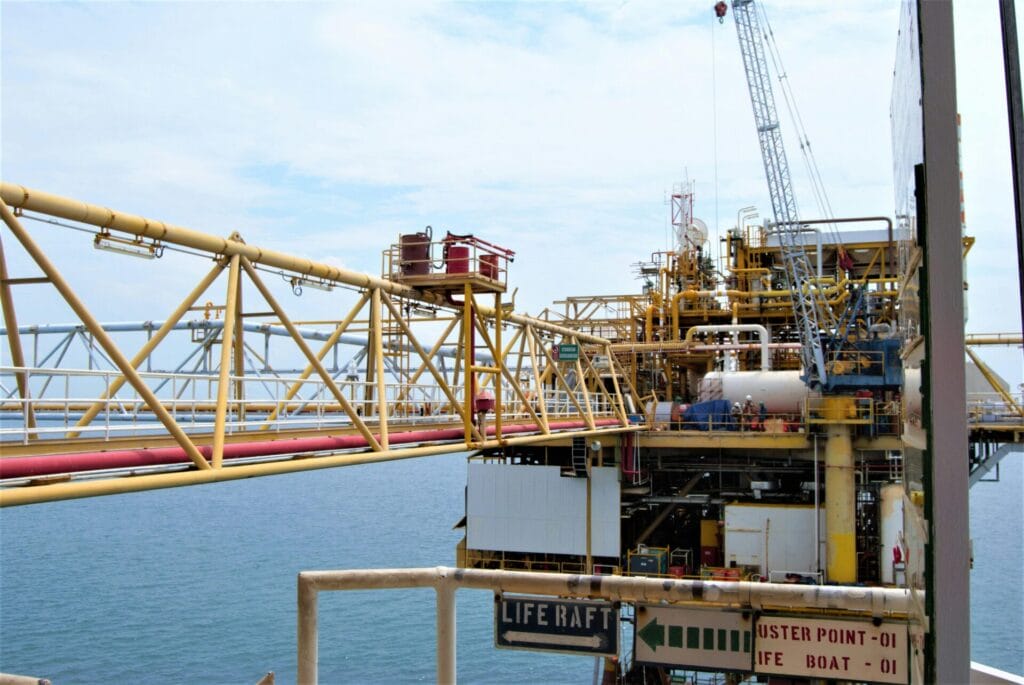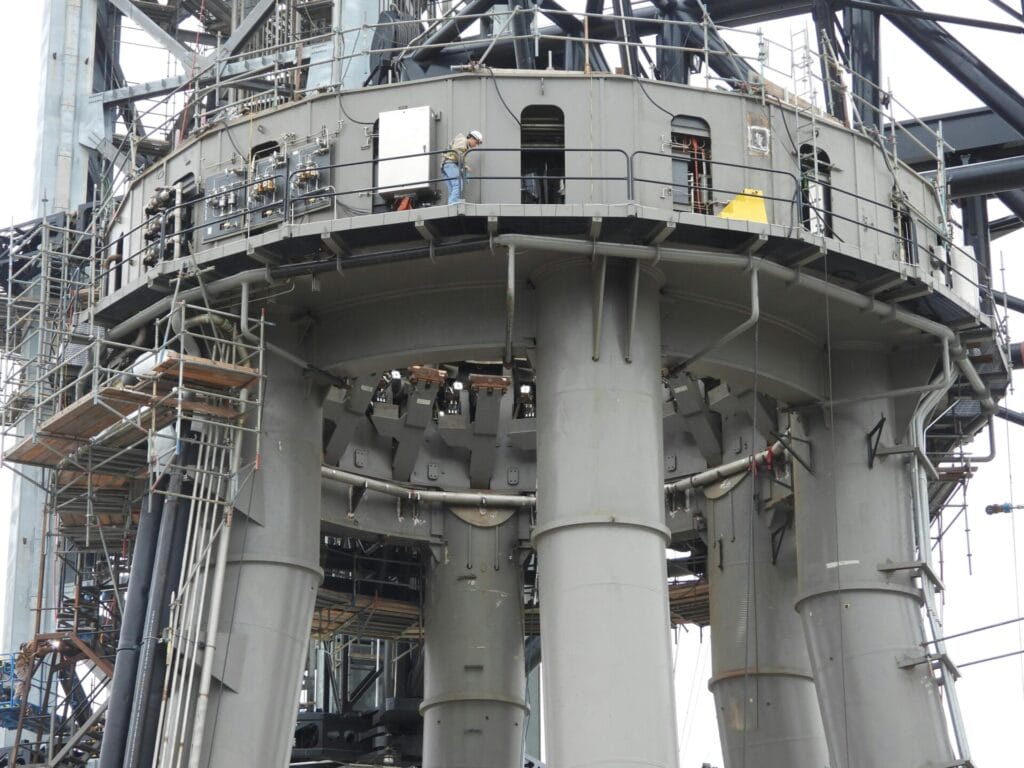Unveiling the Essentials of Offshore Coatings: A Crucial Element in Offshore Asset Management
In the vast expanse of the offshore oil and gas industry, every component of an offshore structure is subjected to harsh environmental conditions. From relentless waves to corrosive saltwater and abrasive winds, offshore structures face a barrage of challenges that can compromise their integrity over time. In this demanding environment, one essential tool stands out as a frontline defense: offshore coatings. As a premier provider of comprehensive solutions for offshore asset management, Kent Offshore recognises the critical role that coatings play in safeguarding offshore structures. In this article, we delve into what offshore coatings are, why they are necessary, and how they contribute to the longevity and performance of offshore assets.
Offshore coatings, also known as marine coatings or protective coatings, are specialised formulations applied to the surfaces of offshore structures to provide protection against corrosion, fouling, and environmental degradation. These coatings are designed to withstand the unique challenges posed by the offshore environment, including exposure to saltwater, UV radiation, temperature fluctuations, and mechanical abrasion.
Why Offshore Coatings Are Necessary
- Corrosion Protection: One of the primary functions of offshore coatings is to protect metal surfaces from corrosion. In the corrosive marine environment, unprotected metal structures are vulnerable to rust and deterioration, which can compromise their structural integrity and safety. The coating forms a barrier between the metal substrate and corrosive elements, preventing corrosion and extending the lifespan of offshore structures.
- Fouling Prevention: Offshore structures are prone to fouling, where marine organisms such as barnacles, algae, and mollusks attach themselves to submerged surfaces. Fouling can increase drag, reduce operational efficiency, and lead to corrosion and biofouling-related issues. Marine coatings with anti-fouling properties help prevent the attachment of marine organisms, thereby reducing maintenance requirements and operational costs.
- UV Resistance: Exposure to UV radiation can degrade surface coatings and substrates, leading to discoloration, cracking, and loss of mechanical properties. Protective coatings are formulated with UV stabilisers and inhibitors to withstand prolonged exposure to sunlight, ensuring long-term performance and aesthetic appeal.
- Abrasion Resistance: Offshore structures are subject to mechanical abrasion from waves, currents, and debris, especially in high-traffic areas or during installation and maintenance activities. Coatings with abrasion-resistant properties help protect surfaces from damage, preserving their integrity and functionality under demanding conditions.


The Importance of Quality Assurance
While marine coatings offer significant benefits in terms of protection and performance, their effectiveness depends on various factors, including the quality of the coating material, surface preparation, application techniques, and maintenance practices. Therefore, it is essential to partner with a trusted provider like Kent Offshore, who specialises in offshore coatings and adheres to industry best practices and standards.
At Kent Offshore, we offer a comprehensive range of protective coating solutions tailored to the specific requirements of our clients’ projects. From surface preparation and coating selection to application and quality control, our team of experts ensures that offshore structures receive the highest level of protection and durability.
Protective coatings play a vital role in safeguarding offshore structures from corrosion, fouling, UV radiation, and mechanical abrasion. By investing in high-quality coatings and adhering to proper maintenance practices, companies can enhance the longevity, performance, and safety of their offshore assets. Partnering with a reputable provider like Kent Offshore ensures that offshore structures receive the best possible protection, preserving their value and integrity for years to come.

